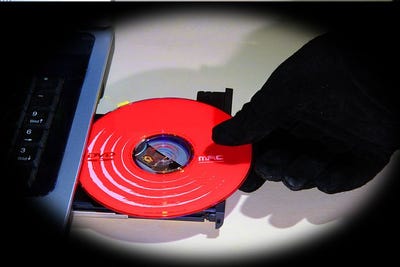May 10, 2017
Christopher Barry admitted to pinching proprietary information from one company and taking it to another.
Nancy Crotti

A former medtech executive has pleaded guilty to stealing trade secrets and giving them to his new employer.
Christopher Barry, 46, of Medina, Minn., entered the guilty plea in U.S. District Court in St. Paul. According to the plea agreement, Barry was vice president of research at Lutonix, Inc., a New Hope, Minn. subsidiary of C.R. Bard and maker of the Lutonix 035 DCB, a drug-coated angioplasty balloon catheter.
Barry began working at Lutonix in 2007 and left in May 2015 following a disagreement with the company's president, the plea agreement says. He accepted the position of CEO of Urotronic, a startup that was founded by a former Lutonix employee and was developing drug-coated balloons for urologic treatment purposes.
Barry was responsible for all R&D, quality assurance and manufacturing at Lutonix. He was also directly involved in developing the confidential process for coating the the Lutonix 035 DCB, which generated most of the company's 2015 sales of $50 million, the agreement noted.
Before he left Lutonix, Barry downloaded "numerous trade secret files" to his Lutonix computer, transferred them to a USB drive, and then to a personal portable hard drive. Ultimately, he transferred them to his Urotronic work computer. Barry is now working as a consultant, according to his attorney, Jim Volling of Faegre Baker Daniels in Minneapolis.
"Mr. Barry has acknowledged that he exercised poor judgment and he deeply regrets the conduct he engaged in," Volling told Qmed in a phone interview. "He has accepted responsibility and been trying to move forward with his life."
In a statement to the Star Tribune of Minneapolis, Urotronic said it had "no knowledge of or involvement with Mr. Barry's actions. When Urotronic learned of his actions, it demanded his resignation."
FDA approved the Lutonix 035 drug-coated balloon in 2014, making it the first non-permanent drug-device combination approved for treating new, or not previously stented, restenotic lesions available in the United States. The device is intended to improve luminal diameter and reduce the incidence of restenosis for the treatment of obstructive de novo or non-stented restenotic lesions (
The investigation and legal fees cost Lutonix $533,842, the agreement notes. Barry could be sentenced to up to 10 years in prison and fined up to $250,000. Volling said he intends to ask for a lesser sentence.
Nancy Crotti is a contributor to Qmed.
[Image courtesy of Pixabay]
About the Author(s)
You May Also Like


